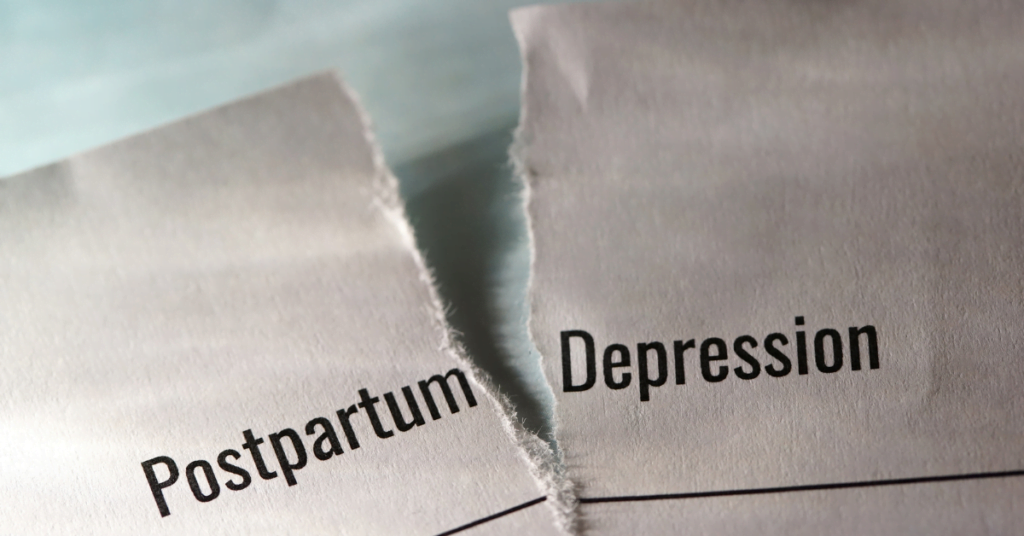Contents
- 1 Postpartum Depression
- 2 How Is Postpartum Depression Different From “Baby-blues”?
- 3 Symptoms of Postpartum Depression
- 4 Causes of Postpartum Depression
- 5 What Are Risks of Postpartum Depression?
- 6 Do Men Also Have Postpartum Depression?
- 7 Diagnosis of Postpartum Depression
- 8 Treatment of Postpartum Depression
- 9 How To Prevent Postpartum Depression?
- 10 Conclusion
Postpartum Depression
 Childbirth can bring a lot of emotions alive. Even if they are not expected, like depression. Postpartum Depression is mostly seen in new moms after their childbirth. Sometimes Postpartum depression is mistaken as ‘Baby blues’. “Baby blues” is a milder form of Postpartum Depression. The symptoms are the same as Depression but they do not last for more than a week or two. Whereas Postpartum Depression lasts for a longer period of time. This is a severe form of Clinical Depression. Research shows that approximately 8-9% of new moms suffer from Postpartum Depression.
Childbirth can bring a lot of emotions alive. Even if they are not expected, like depression. Postpartum Depression is mostly seen in new moms after their childbirth. Sometimes Postpartum depression is mistaken as ‘Baby blues’. “Baby blues” is a milder form of Postpartum Depression. The symptoms are the same as Depression but they do not last for more than a week or two. Whereas Postpartum Depression lasts for a longer period of time. This is a severe form of Clinical Depression. Research shows that approximately 8-9% of new moms suffer from Postpartum Depression.
It is not necessary that it just affects first-time moms. It can even affect when you did not have it for the first time. Most commonly it starts during the first month after the child’s birth.
How Is Postpartum Depression Different From “Baby-blues”?
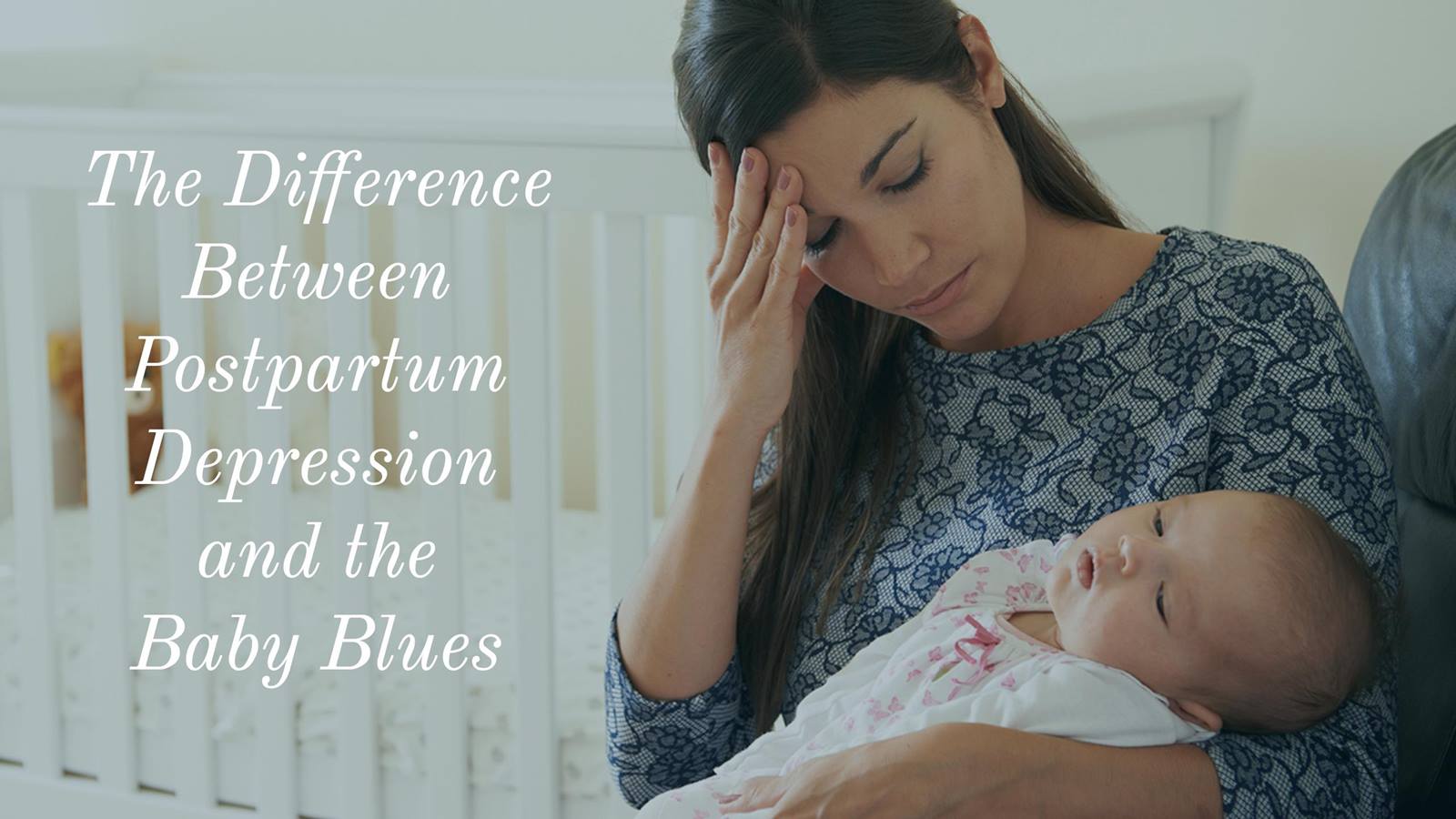
Better known as the “baby blues,” this condition affects between 50 and 75% of women after delivery. If you are experiencing the baby blues, you will have frequent, prolonged bouts of crying. This can be for no apparent reason. Other things you may feel are sadness and anxiety. The condition usually begins in the first week (one to four days) after delivery. Although the experience is unpleasant, the condition usually subsides within two weeks without treatment. All you’ll need is reassurance and help with the baby and household chores.
Postpartum Depression is a far more serious condition than postpartum blues, affecting about 1 in 10 new mothers. If you’ve had postpartum depression before, your risk increases to 30%. You may experience alternating highs and lows, frequent crying, irritability, and fatigue, as well as feelings of guilt, anxiety, and inability to care for your baby or yourself.
Symptoms range from mild to severe and may appear within days of the delivery or gradually, even up to a year later. Although symptoms can last from several weeks up to a year, treatment with psychotherapy or antidepressants is very effective.
Symptoms of Postpartum Depression
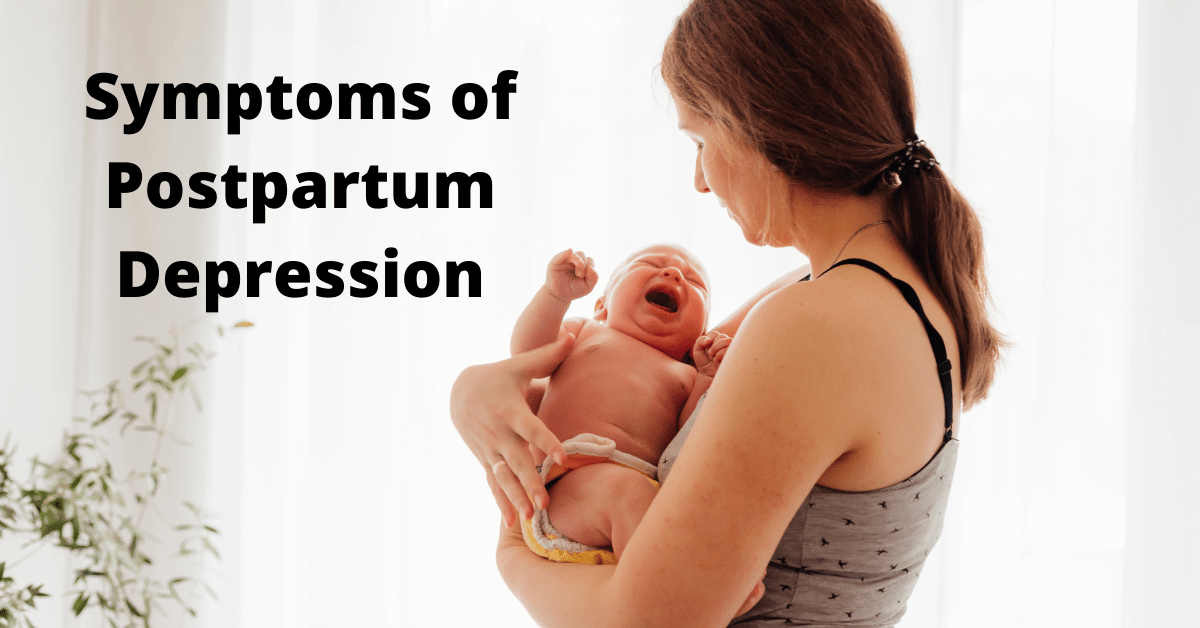
It’s not uncommon for parents to have sleepless nights after the birth of their child. Furthermore, taking care of a newborn may exhaust you. These are just some of the minor adjustments that occur in your life when you have a kid. But, when you’re feeling down or lonely, these are indications that you’re suffering from Postpartum Depression.
Fatigue and Insomnia
You may begin to be lazy and become weary very quickly in life. Because of this, half of your actions are affected. You have an obvious lack of vitality inside yourself. As a result, you may have insomnia. In some situations, it has been shown to be the case. Sleeping might occur. Another worry about anxiety develops as you are not able to sleep much.
Irritability
Irritability is one of the most typical symptoms of Depression, as well as a symptom on its own. In smaller issues, people may become irritated and angry. When irritability becomes a trigger for substance abuse, hazardous behavior, or other problems, it can quickly get out of hand.
Mood Swings
You could be experiencing out-of-control feelings. Everyone has a lot of mood swings in their actions. You may laugh one moment and cry the next, over and over. Your actions are extremely variable.
Anxiety
Anxiety can be the cause of or co-occur with, Depression. This is a feeling of dread or sadness. Depression is not the underlying reason for Anxiety. The following are some typical symptoms: restlessness, tiredness, and so on.
Fluctuations In Weight
Weight may vary from person to individual. Some people acquire a lot of weight, while others lose a significant amount. While some lose weight due to a decrease in appetite.
Restlessness
Restlessness is a quite frequent postpartum depression symptom. More than three-quarters of those suffering from anxiety report this “baby-blue sign.” It’s postpartum depression if you’ve had restlessness for more than 3-4 weeks.
Social Awkwardness
Avoid others If you don’t want to see your friends and family, that’s okay. It may be difficult to attend postnatal support groups.
Suicidal Thoughts
If you’re having suicidal thoughts, you should see your doctor. If you have a strong desire to harm yourself, get help as soon as possible.
Psychotic Symptoms
If you’re having suicidal thoughts, you should see your doctor. If you have a strong desire to harm yourself, get help as soon as possible.
Causes of Postpartum Depression
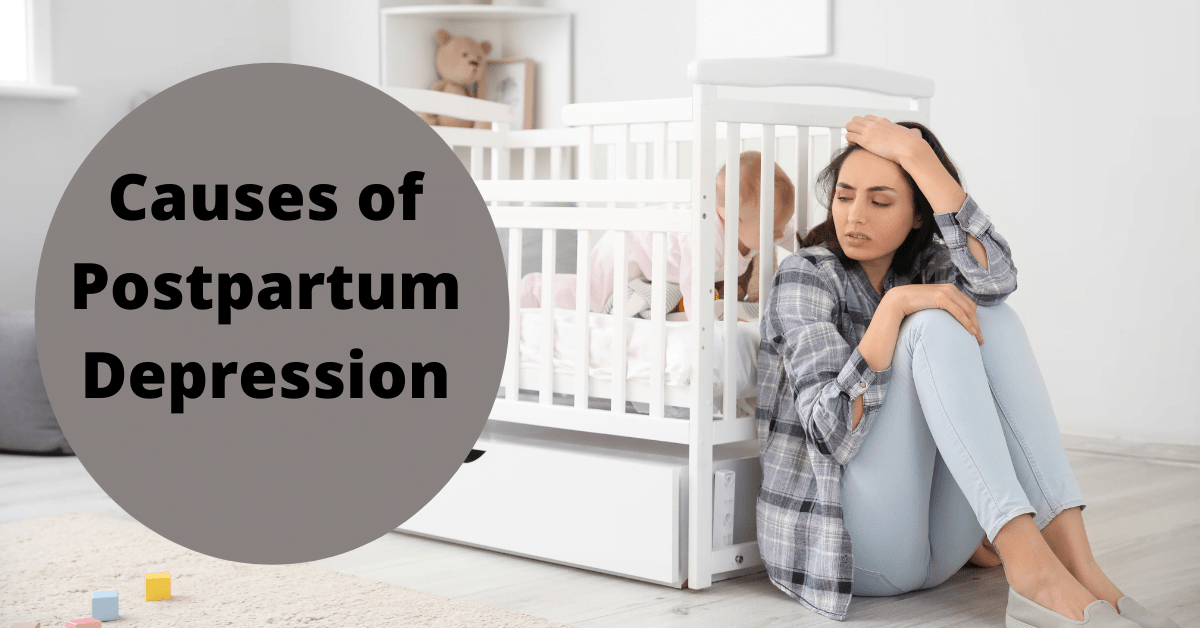
Postpartum Depression is very common nowadays but the causes of the depression are still unknown. Postpartum depression can affect you at any time whether it is during pregnancy or after the pregnancy period. However, it can be mostly seen in people after pregnancy. These are some common causes that have been identified as postpartum depression:
During Pregnancy
During pregnancy these are the causes that can increase the chances of depression:
- If there is a history of depression in the family
- Alcohol and drug abuse
- If there is a history of mental illness
- There is no support from your family or friends
- Anxiety about the baby
- If there was any problem with the previous baby
- The mother is of very small age
- There are marital or financial problems in the family
After Pregnancy
There are hormonal changes in a woman after a child’s birth which can eventually cause postpartum depression. Sometimes the thyroid levels in a woman also drop to certain levels after giving birth to the child. Low thyroid levels are also sometimes symptoms of postpartum depression. Some other causes are :
- Excessive tiredness after delivery
- Broken sleep
- Stress in managing work
- Feeling lonely
- Less self-confidence
- Losing control over time
What Are Risks of Postpartum Depression?
Postpartum Depression is very common, however, the risks after the depression increases in certain cases. These cases are:
- If the mother had Premenstrual Dysphoric Disorder (PMDD)
- If you had Bipolar Disorder
- Depression during pregnancy
- Thoughts about having the baby
- Postpartum Depression after a previous pregnancy
- You have multiple births
- Difficulty in Breastfeeding
- Problems in relationships
- Major pregnancy complications
Do Men Also Have Postpartum Depression?
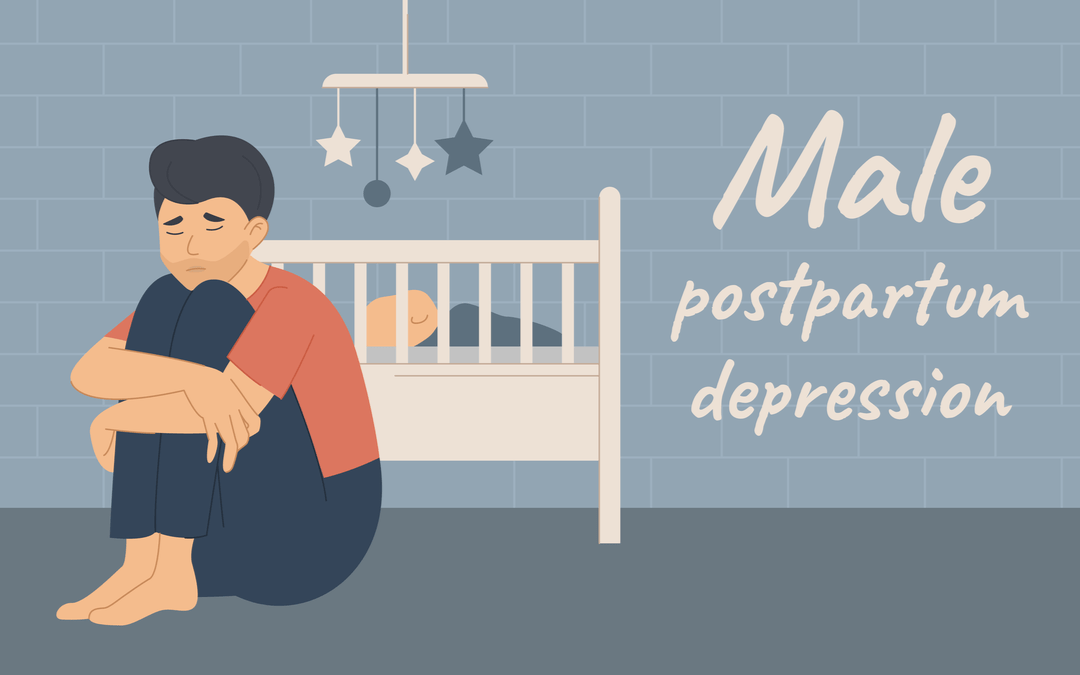
Recent studies show that there are cases of postpartum depression in men too. But usually, it gets unnoticed due to various reasons. Almost all the symptoms for both men and women are the same, but men are more likely to conceal their feelings. In men, depression is more likely to affect after a period of time. There are some Risk factors for Postpartum Depression in men such as:
- If there is any history of depression in family
- Marital disagreements
- Financial problems
- Older age
- If there is any lack of social support
- If they have a partner who has a mood disorder.
Diagnosis of Postpartum Depression
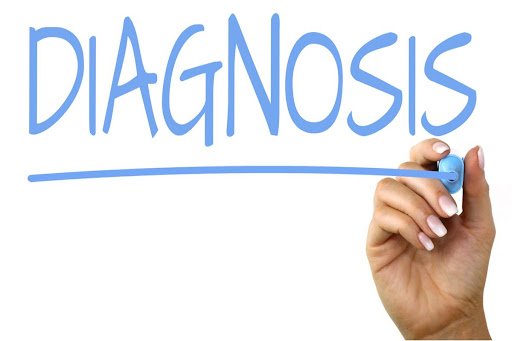
If you have any of these symptoms, see a doctor right away. These symptoms need immediate medical treatment. Because if you ignore any of them, it might end up being much more serious in the long run. You could have another significant health issue instead. Some people may not feel all or any of these symptoms. The doctor will examine your physical condition. He or she will look at whether any bodily issue is causing the postpartum problem. If the problem isn’t related to physical issues, the doctor may advise you to seek help from a Psychologist.
When a person has had the symptoms for more than three weeks, they are considered to have postpartum depression. If you’ve been diagnosed with postpartum depression, you might want to seek treatment from a professional. These are those who specialize in this condition. Postpartum depression is a serious, but treatable mental illness that probably affects one in five mothers. It can be brought on for a variety of reasons, so getting an accurate diagnosis from a knowledgeable expert may help you get the treatment you need to live a normal life.
The psychologist will ask you various questions to assess the level of postpartum depression. He or she will evaluate the severity based on symptoms and the reason for the condition. If you are having any difficulties performing your job, you must tell your doctor. You should also notify him if, after the birth of your kid, you experienced baby blues.
Treatment of Postpartum Depression
The severity of your illness determines the treatment you require. You should be informed about all of the expected advantages and risks of therapy. This is so that you can make the best decision possible based on your own situation.
The treatment options which are available are:
Medications
 This is the most frequently employed therapy for the treatment. This isn’t a long-term cure for the problem since it merely relieves symptoms but does not address the underlying issue. The use of anti-depressant tablets can lead to dependence in a patient. The disadvantages of these tablets extend beyond their use. Even if a person takes medicines, he or she should consider trying other options.
This is the most frequently employed therapy for the treatment. This isn’t a long-term cure for the problem since it merely relieves symptoms but does not address the underlying issue. The use of anti-depressant tablets can lead to dependence in a patient. The disadvantages of these tablets extend beyond their use. Even if a person takes medicines, he or she should consider trying other options.
Therapy
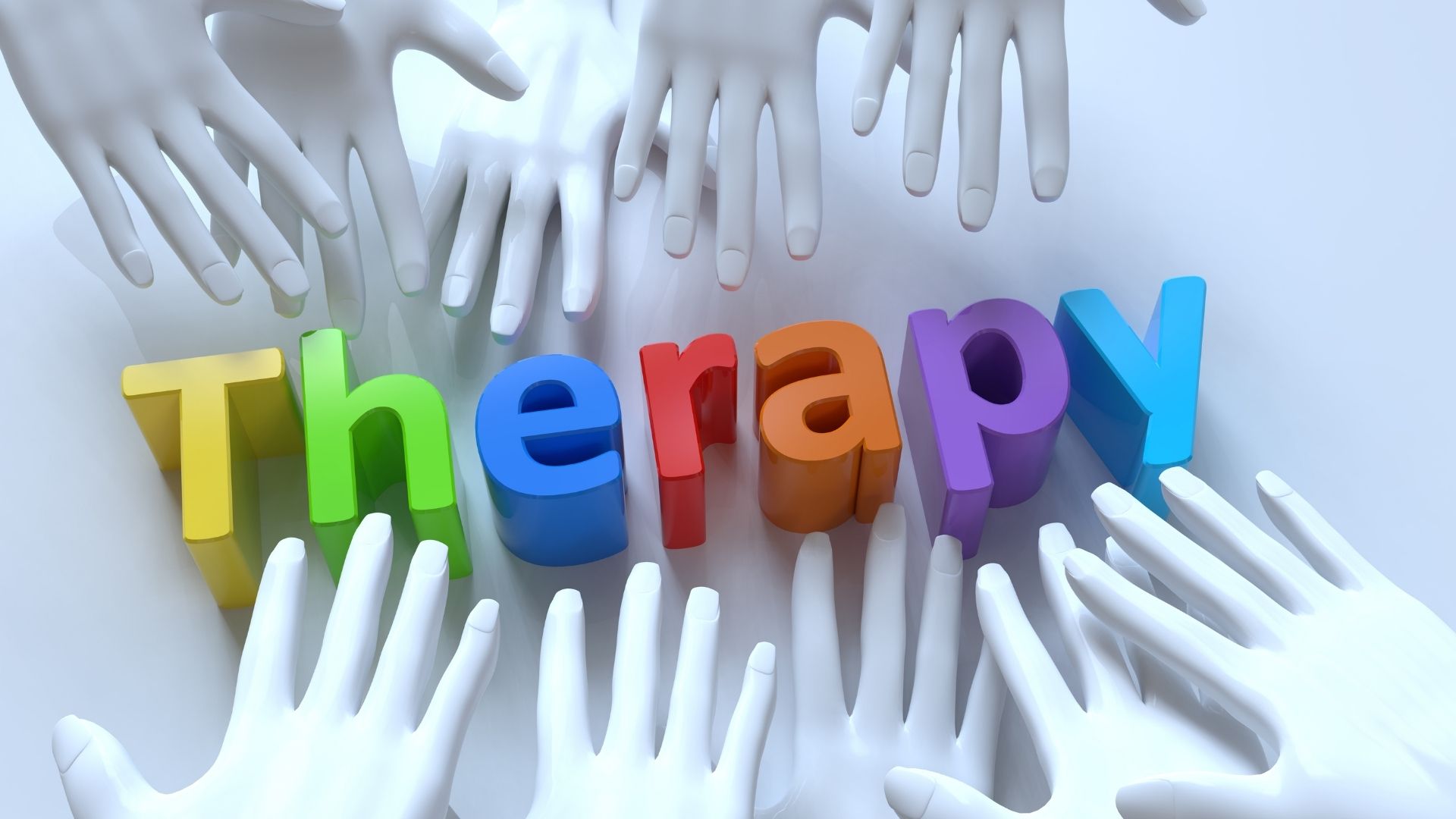 Therapy is also helpful to talk about your feelings, but you are devastated. It may be difficult to convey your emotions to someone close on a regular basis. It can be simpler to speak with a professional counselor or therapist. Telling someone how you feel might provide you with some comfort. Being able to make sense of your problems and understand them. In certain regions, a trained health visitor can provide counseling at home. There are also more specialized psychological treatments available. Cognitive-behavioral therapy may aid in the development of awareness. It is regarding how some of your thoughts and actions may be causing you to become sad. You can learn to modify these ideas that have a beneficial influence on other symptoms.
Therapy is also helpful to talk about your feelings, but you are devastated. It may be difficult to convey your emotions to someone close on a regular basis. It can be simpler to speak with a professional counselor or therapist. Telling someone how you feel might provide you with some comfort. Being able to make sense of your problems and understand them. In certain regions, a trained health visitor can provide counseling at home. There are also more specialized psychological treatments available. Cognitive-behavioral therapy may aid in the development of awareness. It is regarding how some of your thoughts and actions may be causing you to become sad. You can learn to modify these ideas that have a beneficial influence on other symptoms.
Other psychotherapies may help you to understand your depression in terms of your relationships or past events. If you’ve recently had a kid, some counseling and psychotherapy services will see you more quickly.
How To Prevent Postpartum Depression?
There are some of the tips or steps that can help you to prevent Postpartum depression, or cope up with its effects. Some of these are:
- Limit the visitors in your home
- Take adequate rest when the baby is sleeping
- Expect some good and some bad days
- Take good care of yourself
- Do regular exercises, take a break or go out for a short walk.
- You can take others help
- You should stop avoiding your family and friends.
- Start avoiding intake of caffeine or alcohol.
- Be in constant touch with your doctor who is helping you out in this situation
- If you are taking any antidepressants in pregnancy with the doctor’s advice, Don’t stop them.
Conclusion
If you have postpartum depression or any symptoms of postpartum depression, take appropriate measures before it gets late. If you are having any problem sleeping, concentrating at work, etc, Consult a doctor first. Do not eat anything without consultation from the specialist as it can negatively affect your health.
For more information, please contact MantraCare. Depression is a mental illness characterized by persistent feelings of sadness, hopelessness, and loss of interest in daily activities. If you have any queries regarding Online Depression Counseling experienced therapists at MantraCare can help: Book a trial Depression Therapy session
